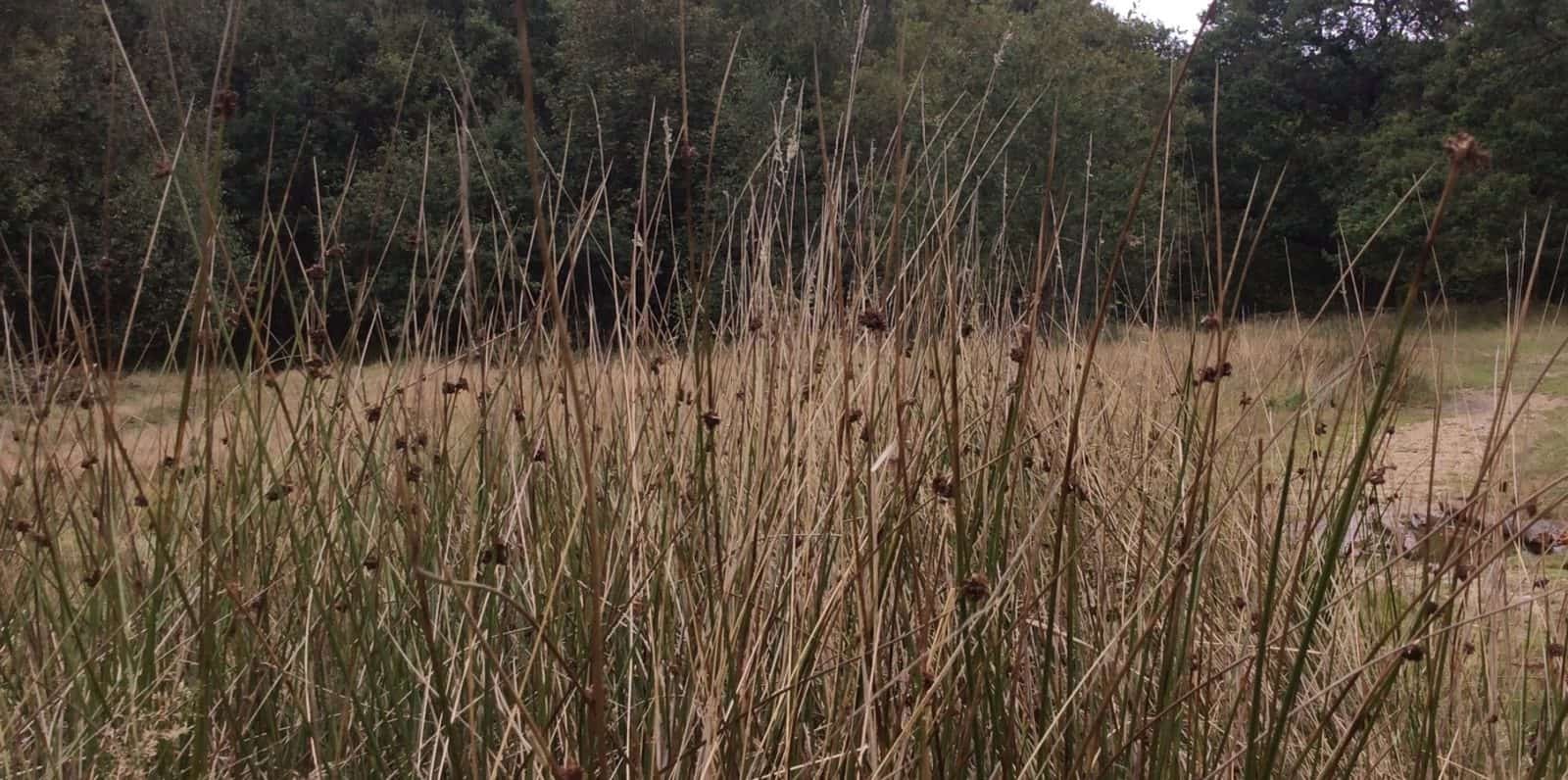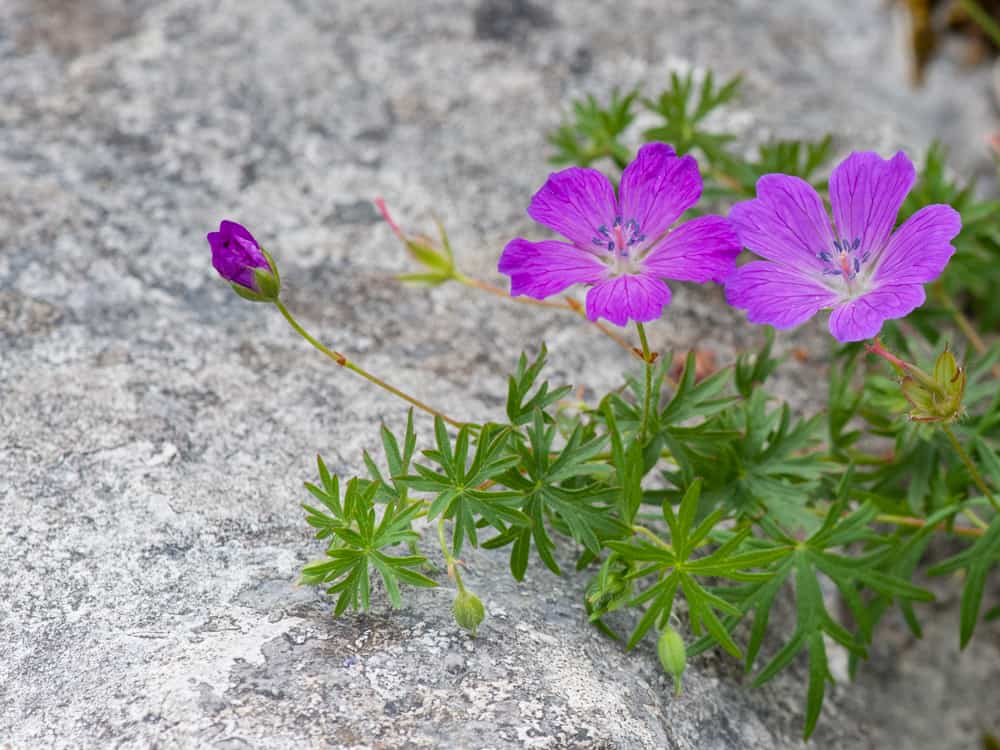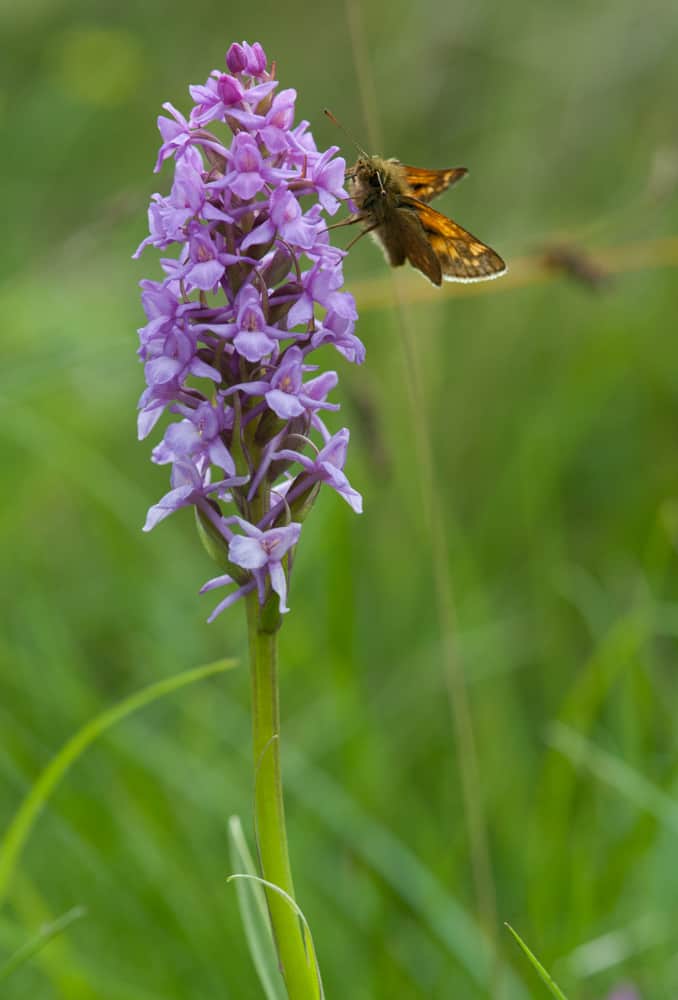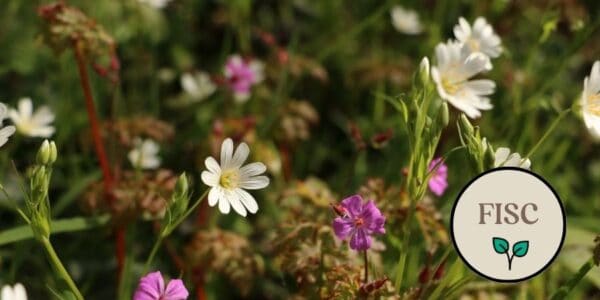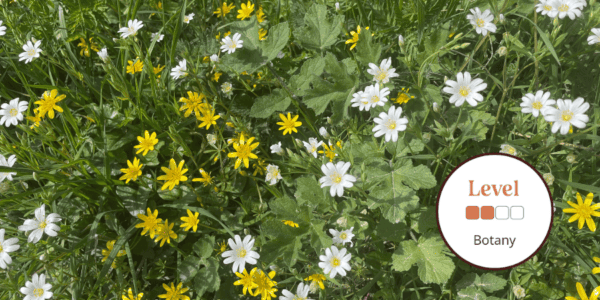This beginner to intermediate botany course will help you learn how to identify a range of plant species that are specific to limestone habitats.
The magnificent limestone landscape of the Yorkshire Dales hosts a rich and varied flora in a surprisingly diverse range of habitats. We will be exploring the key habitats and encounter many of the species that are characteristic of base-rich soils.
Learning to name the species you find is an important step in understanding the environment around you, yet field guides and identification keys can be intimidating, to begin with. During this course, we will immerse ourselves in the limestone landscape and learn how to use a good field guide. We will visit a variety of local habitats to gain experience in using keys and identifying a wide range of species in the field. We will concentrate on several important plant families including ferns, grasses and sedges.
Your course will take place in our Malham Tarn centre based in a Georgian fishing lodge situated on the northern shore, surrounded by the 147-hectare Malham Tarn National Nature reserve in North Yorkshire.
PLEASE NOTE the course fee is for tuition only. There is no accommodation provided with this course. If you would like to book accommodation, lunch and an evening meal at Malham Tarn, please email [email protected]
The course is suited for plant enthusiasts wanting to take their interest a step further – learning to use identification keys and understanding the vegetation.
Who Should Attend?
Nature enthusiasts, Students, Rangers, Early career ecologists.
Knowledge Level
Beginner. Level descriptors can be found on the following webpage: Framework and Course Level Descriptors
Prior Knowledge
It would beneficial for participants to have some species identification background as we will be seeing many plants different types of plants.
This course will cover:
-
- The major plant families of limestone habitats
- Field visits to woodland, grassland and limestone pavement
- How to use identification keys
By the end of the course, you will be able to:
-
- Describe the ecology of limestone habitats
- Identify some important plant families and characteristic limestone species
- Confidently use an identification key
- Share this knowledge with friends, family and fellow volunteers
The course gives you the opportunity to immerse yourself in a new subject and acquire novel skills. Our fantastic tutor will combine the use of classroom-led learning and outside learning opportunities to give individuals the skills and confidence to progress their learning.
- See the ‘Example Timetable’ and ‘What’s Included’ sections below for more information about this course.
- Upon booking you will need to provide individual details of all attendees
- Please email [email protected] if you have any questions.
-
Group Bookings Made Easy
If you have a group of 10 or more individuals wanting to complete one of our courses, our team are available to discuss your options – from discounts to private team courses.
- Discounted rates
- Privately run courses for your group
- Bespoke courses developed specifically for your needs
-
If we are unable reach viable numbers for this course, we will inform you of the course cancellation 14 days prior to the course run. We would recommend when purchasing accommodation and/or travel you should take out your own insurance.
Tutor: Ian Powell
Ian Powell is a former ecology tutor with the FSC at Slapton Ley and on overseas courses to South America. He now teaches undergraduate and masters courses in conservation biology at Edge Hill University and carries out botanical and butterfly surveys and research in the Yorkshire Dales National ParkBook with Confidence
We understand the difficulties of making plans in the current situation when guidelines continue to change, and insurance conditions are being tightened. In response, we will continue to offer additional flexibility. Find out more here
Example Timetable
Example Timetable
This timetable is subject to change but should give a clear outline of what to expect
-
- Please arrive at 9:45am in time for the course to start promptly at 10:00am
- The course will end at 5:00pm
Day 1
| 10:00am | Introductions |
| 10:30am | Prepare for field session |
| 10:45am | Visit to woodland, grassland and fen habitats |
| 1:00pm | Lunch – Not included |
| 2:00pm | Continued field time |
| 4:30pm | Return to classroom - plenary and final questions |
| 5:00pm | End of day 1 |
Please note accommodation, refreshments and an evening meal are not included
Day 2
| 10:00am | Recap of day 1 |
| 10:30am | Prepare for field session |
| 10:45am | Visit to limestone pavements |
| 1:00pm | Lunch – Not included |
| 2:00pm | Continued field time |
| 4:30pm | Return to classroom - plenary and final questions |
| 5:00pm | End of course |
What's Included
The course has been carefully created by expert tutors and educators to help you continue to build and develop your knowledge and apply it within the field surrounded by like-minded individuals.
The course includes:
- Classroom learning covering the theory of the species
- Field excursions to apply new knowledge
- Expert tuition for which the Field Studies Council is renowned
- Clear objectives and progression
You can rest assured that the absolute best content from an expert in environmental education will be provided. In choosing a Field Studies Council course, you will be joining thousands of people who learn with us each year.
Before You Attend
What to bring:
- Notepad and pencil.
- Personal plant identification books.
- Hand lens, min 8x magnification*.
- Lunch and refreshments
- Sensible footwear and clothing for being outdoors
*These items can be borrowed at the Centre.
There will be a member of staff with first aid training and access to a first aid kit on site. If you have special medical or access requirements, please let us know as soon as possible so we can plan the course.
Sorry this course has ended

